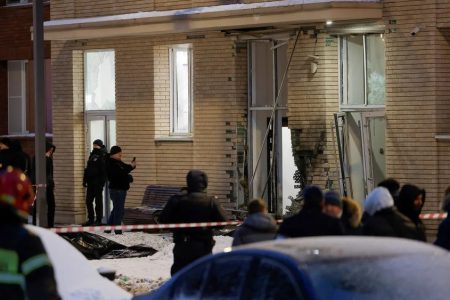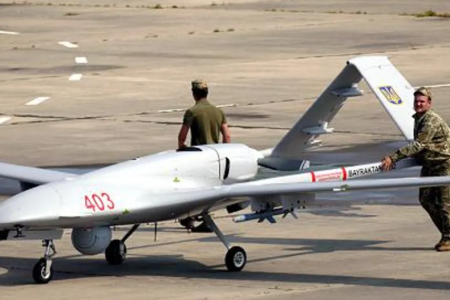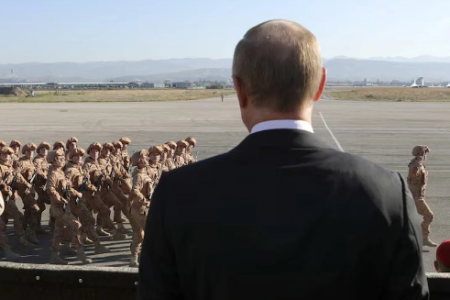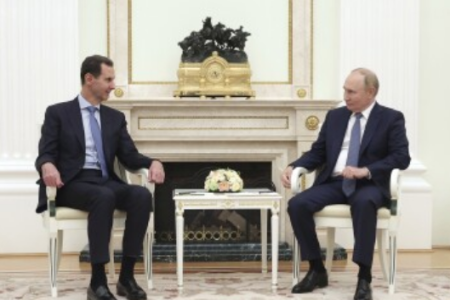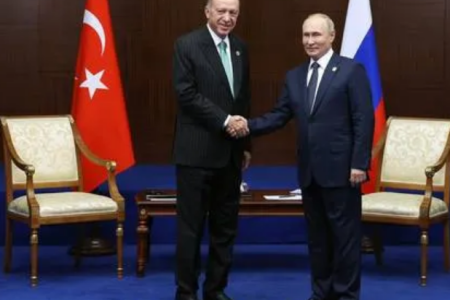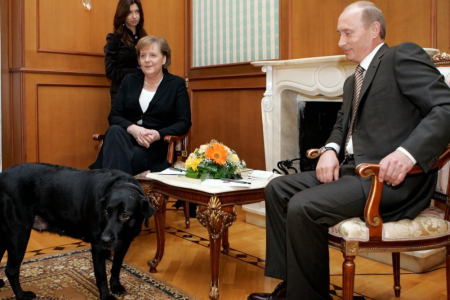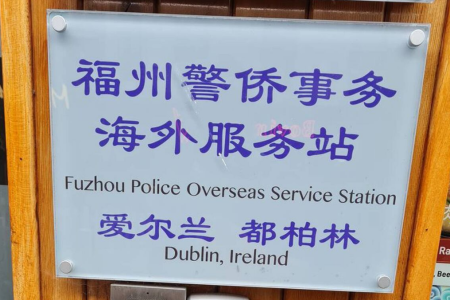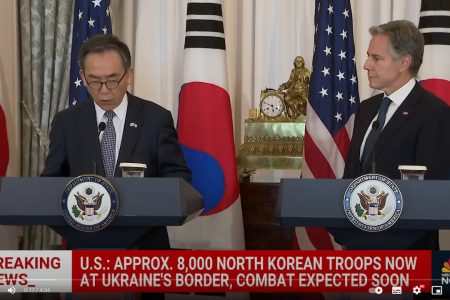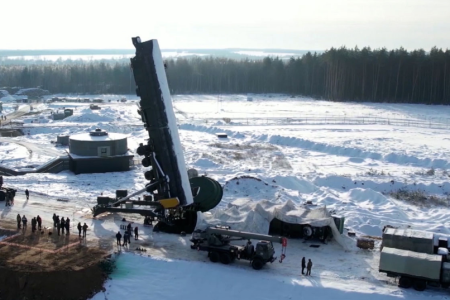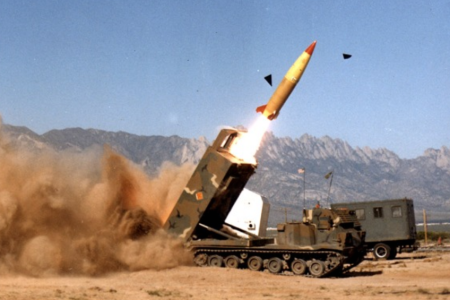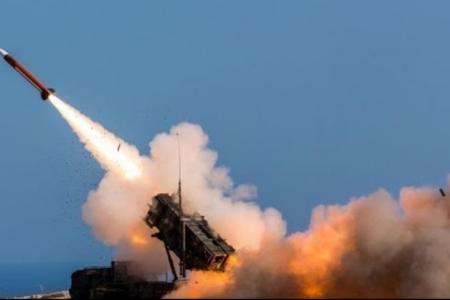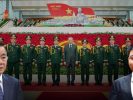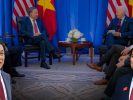
An article on the People’s Army in Vietnam page recently praised the high level of workmanship and expertise of the military personnel- cybersecurity experts at Command 86.
Compared with the West, the military force for cyberspace in Vietnam was born no later, but their mission was different, including the criterion for “revolution,” not just pure cybersecurity.
High Command 86, introduced by Vietnamese newspapers along with a speech by Lieutenant General Phan Van Giang at the 13th National Congress of the ruling Communist Party of Vietnam, is the body with very important activities for the country.
Vietnam established a High Command of Cyber Operations
The article in the People’s Army Newspaper (February 5, 2021) stated that the establishment was less than three years, but the source of the Command’s staff “has high expertise in information technology and cyber warfare.”
The illustration shows that this unit has both men and women who wear military uniforms.
The article praised “cyber warriors” for having a “passionate working spirit,” burning “with all their might for work,” “eating and sleeping with computers.”
However, the article revealed that the aforementioned cyber warriors still need a Western security certificate to operate.
“One of the strict conditions for those who want to pursue an information security career is to have international certification in information technology. Currently, SANS Academy (USA) has a lot of security certification courses, such as GISF, GSEC, GPEN, GCIH … to provide experts with updated knowledge and skills about security. complex network.”
Vietnam
Of course, learning from abroad (via the internet?) cannot equip the High Command 86 with all necessary knowledge, because no country will share all the cybersecurity “treasures” for Vietnam.
“Meanwhile, in training and exchanging with countries around the world, they also do not share cyber operations, so there is no other way to be than self-research, self-learning, and writing strategy after each fight,” said a lieutenant colonel at Command 86.
On the other hand, it seems that these “cyber warriors” themselves need to “keep themselves” in order not to stumble “online,” as the leadership of Command 68 admitted:
“Operation on cyberspace, the line between the good and the bad is very fragile, without bravery, loyalty, no professional ethics, undisciplined freedom, it is easy to be used and bribed by bad guys. Just one click of the mouse is possible from a good man to a criminal, a traitor,” said Lt. Col. Nguyen Cao Cuong, 1st Battalion Commander.
Another officer, Major Dr. Nguyen Duy Thai, the commander of Battalion 2, elaborated on the subjects faced by the High Command 68:
“The hostile forces, reactionaries, and hackers have many sophisticated tricks, we can just ‘clean’ the server of the agency or unit, but later it appears elsewhere, etc.”
Force 47 and public opinion?
Vietnamese newspapers did not specify what Command 86 had to do with Force 47 which reportedly had 10,000 members by the end of 2017.
According to Vietnamese military, police, and propaganda officials (Tuoi Tre 25/12/2017), Force 47 seems to have the main task of protecting the political system of the Communist Party rather than operating against intrusion and hacking on cyberspace from external state agents.
The article emphasizes that Force 47 is the nucleus fighting in cyberspace, “both red and specialized,” steadfast in its stance, with qualifications and skills in using high technology.
They played a key role in the fight “against false views or distorted allegations on cyberspace” according to the then Deputy Director of the Political Bureau of the Ministry of Defense, General Nguyen Trong Nghia.
After the 13th National Congress, General Nghia was recently promoted in the Party, to the position of Head of the Communist Party’s Central Propaganda Department.
It is not clear what activities by groups that some overseas Vietnamese Internet observers labeled “state-sponsored trolls or opinion shapers” are linked to the acclaimed units above or not.
The Vietnamese social networking community reflects that there are virtual nicknames that often go to free-of-mind or “left-hand” discussion pages to make dirty comments over and over again.
The BBC has no conditions to confirm where these activities come from.
Cybersecurity in some countries
In the UK, just November 2020, Prime Minister Boris Johnson and Defense Minister Ben Wallace announced the creation of the National Cyber Force (NFC).
This is a partnership between the GCHQ Intelligence Center and the British Ministry of Defense whose goal is to protect Great Britain in the cyberwar.
The British officials emphasized the role of protecting the national information network, the Royal Army’s warships, and aircraft against cyber attacks.
NFC’s regulations on operations are publicly available on the website https://www.gchq.gov.uk/news/national-cyber-force and employee recruitment ads at the “Civil Service Jobs” website.
The NFC staff in the UK are not soldiers.
In 2010, the US was established – the Cyber Command (US Cyber Command) under the Department of Defense.
In addition to their secret activities, they often advertise themselves on the Internet as a normal public agency, including Valentine’s Day wishes on Twitter, Facebook last week.
China
In China, the Liberation Army’s Cyber Warfare Force was established in 2015 when the government reformed the military forces.
Although only called the Strategic Institute, China’s cyber force is built on the 2013 military strategy, properly evaluating competitors in cyber technology.
According to some analyzes in the US, China uses the term “Eight King Kongs” (Hollywood movie giants) to identify the major companies holding high-tech supply chains that China needs to compete with.
They are Apple, Cisco, Google, IBM, Intel, Microsoft, Oracle, and Qualcomm.
Unlike the way Vietnam’s Command 68 had to try to follow Western technology to learn from, China’s cyber warfare has the original goal of closely monitoring and even imitating Eight King Kongs.
China then proceeds to develop infrastructure for private cyberspace, including super-fast servers and giant data centers to compete with other countries.
As a result, China can ensure the security of its information policy in critical areas and then can use parallel tools to expand outward.
In addition to being confidential and accused of using cyberspace to steal high technology, China uses cybersecurity forces to promote the Communist Party of China’s image.
In information warfare with rivals around the world, China is now technically capable in the top 100 but lags behind with a language barrier.
To combat information attacks around the world, China is forced to use English because Chinese only has 1.7% of active users on all global websites.
North Korea
One of the countries facing economic difficulties but North Korea has a very strong and aggressive combat force, according to Western assessments.
The post by Michael Raska on the page of the RSIS Institute in 2020 suggests that since the 1990s Pyongyang has focused on hacking.
The DPRK’s Reconnaissance General Bureau recently admitted Room 121 and Unit 91 to strengthen it.
North Korea’s cyberspace operations have the goal of gathering and even stealing high-tech information for missile programs and economic development, according to Mr. Raska.
Sometimes North Korean hackers also punish foreign film studios to block works that “defame” their country, such as the 2014 attack on Sony Pictures.
However, it is judged that North Korea may have or is about to embrace the advanced quantum encryption technology.
Thoibao.de (Translated)
Source: https://www.bbc.com/vietnamese/vietnam-56125532



